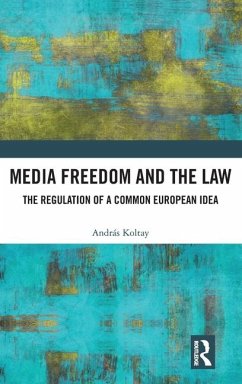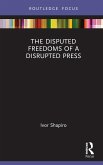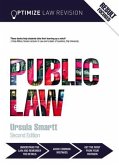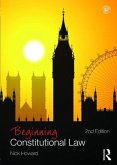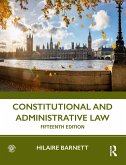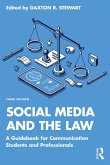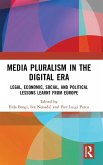The main objectives of media regulation in Europe are to protect media freedom, to ensure the social responsibility of the media, and to prevent harm caused by speech published through the media. This book examines the way in which these are reflected in European legal regimes and jurisprudence at the supranational, regional, and national levels.
It addresses the theoretical considerations behind the protection and restriction of media freedom. It starts from the assumption that there is a common European ideal of media freedom as a human right. Apart from EU law, and in many cases similar national regulations, many common points can be identified across Europe in the theoretical underpinnings of this right, and the history of struggles for this freedom in different European countries also shows common features.
While the focus is on media freedom in Europe, the work also discusses the uniquely distinct concept of freedom of expression and of the media that is prevalent in the US, the principles of which have a significant impact in Europe. The book uses a comparative method, in part, as it attempts to outline the common regulatory framework for the idea of media freedom on a European scale. The reference to national laws and court decisions is intended to illustrate this picture, looking primarily at what binds European states together.
The work will be a valuable resource for those working in the areas of public law, media law, media studies, comparative law, international human rights law, and legal philosophy.
It addresses the theoretical considerations behind the protection and restriction of media freedom. It starts from the assumption that there is a common European ideal of media freedom as a human right. Apart from EU law, and in many cases similar national regulations, many common points can be identified across Europe in the theoretical underpinnings of this right, and the history of struggles for this freedom in different European countries also shows common features.
While the focus is on media freedom in Europe, the work also discusses the uniquely distinct concept of freedom of expression and of the media that is prevalent in the US, the principles of which have a significant impact in Europe. The book uses a comparative method, in part, as it attempts to outline the common regulatory framework for the idea of media freedom on a European scale. The reference to national laws and court decisions is intended to illustrate this picture, looking primarily at what binds European states together.
The work will be a valuable resource for those working in the areas of public law, media law, media studies, comparative law, international human rights law, and legal philosophy.
"What parts of traditional media law can be translated for platform-mediated speech? András Koltay provides a valuable resource for thinking about that challenge and its place in the future of public debate. Examining European ideals of free expression and media freedom, and the objectives underlying European media law - while carefully contrasting the approach with US ideas - Koltay offers a work to draw on and learn from." Andrew Kenyon, Professor, Associate Dean, Melbourne Law School, The University of Melbourne
"In this exceptional book, Professor Koltay secures his reputation as the leading authority on European media law. It is a thoughtful, erudite contribution that challenges the preconceived assumptions and ideas that both inform and plague judicial reasoning concerning the meaning and nature of media freedom, especially in the Strasbourg jurisprudence. It is a book that deserves the attention of scholars, practitioners, and policy-makers in this field." Paul Wragg, Author of A Free and Regulated Press and Professor of Media Law, University of Leeds
"Media Freedom and the Law: The Regulation of a Common European Idea could not have come at a more pressing time. Especially the evolution of online platforms as a new form of speech intermediation has shifted the emphasis from the importance of the media for public discourse, and the media's concomitant rights and privileges, to the media's duties and responsibilities. If necessary to protect freedom, to ensure social responsibility and to prevent harm caused by speech published through the media, media regulation can be justified. However, such media regulation has to be in accordance with fundamental rights, particularly freedom of expression and media freedom. András Koltay, one of Europe's leading experts on freedom of speech and media freedom, presents a lucid analysis of this dilemma, providing key insights from the theoretical foundations of free speech, relevant case-law, scholarship and media legislation, ranging from Jeremy Bentham to the European Media Freedom Act. This book is a must-read for anyone participating in one of the most crucial debates of our time." Jan Oster, Professor for Private Law, Business Law, Media Law, Data Law and Digital Law at the University of Osnabrück
"Media Freedom and the Law provides an indispensable reference for anyone interested in contemporary debates about the proper role of the state in using command-and-control regulations, as well as lighter-touch regulatory approaches, to enhance and improve the media's contributions to the process of democratic deliberation. Professor András Koltay's excellent book provides a comprehensive overview of how European media regulators, at both the European Union and domestic levels of government, seek to use a wide variety of regulatory tools to hold the media-including traditional press outlets, broadcasters, and social media platforms-accountable to We the People. These efforts include direct regulations, "voluntary" regulation by "raised eyebrow", and reliance on media entities voluntarily observing principles of responsible journalism in the public interest. This impressive work reflects and incorporates mastery of the contrary U.S. position, which posits that any and all forms of content-based government media regulation are inherently and invariably distortionary (and therefore illegitimate). Finally, Koltay engages in a thoughtful, serious way the principal normative theories that seek to define and justify the role of a free press in a democracy. Media Freedom and the Law mounts a convincing, sustained argument in favor of the European point of view that thoughtful government regulation can facilitate and improve the Fourth Estate's crucial role in facilitating the process of democratic self-government." Ronald J. Krotoszynski, Jr., John S. Stone Chair, and Professor of Law, University of Alabama School of Law, Tuscaloosa, Alabama
"The role played by the media in shaping our view of the world means that understanding the conceptual and normative limits of media freedom is critically important to the health of our public sphere. Yet, in a world where technology has changed the media ecosystem beyond recognition in recent years this is becoming increasingly challenging. This is why Professor Koltay's book is so timely and important. His accessible analysis and expert insight into the complexities and nuances of media freedom, and the legislation and jurisprudence relating to it, means this book will be invaluable to commentators, scholars, students, policy-makers and practitioners across Europe." Peter Coe, Associate Professor in Law, Birmingham Law School, University of Birmingham and Senior Visiting Research Fellow, School of Law, University of Reading
"In this exceptional book, Professor Koltay secures his reputation as the leading authority on European media law. It is a thoughtful, erudite contribution that challenges the preconceived assumptions and ideas that both inform and plague judicial reasoning concerning the meaning and nature of media freedom, especially in the Strasbourg jurisprudence. It is a book that deserves the attention of scholars, practitioners, and policy-makers in this field." Paul Wragg, Author of A Free and Regulated Press and Professor of Media Law, University of Leeds
"Media Freedom and the Law: The Regulation of a Common European Idea could not have come at a more pressing time. Especially the evolution of online platforms as a new form of speech intermediation has shifted the emphasis from the importance of the media for public discourse, and the media's concomitant rights and privileges, to the media's duties and responsibilities. If necessary to protect freedom, to ensure social responsibility and to prevent harm caused by speech published through the media, media regulation can be justified. However, such media regulation has to be in accordance with fundamental rights, particularly freedom of expression and media freedom. András Koltay, one of Europe's leading experts on freedom of speech and media freedom, presents a lucid analysis of this dilemma, providing key insights from the theoretical foundations of free speech, relevant case-law, scholarship and media legislation, ranging from Jeremy Bentham to the European Media Freedom Act. This book is a must-read for anyone participating in one of the most crucial debates of our time." Jan Oster, Professor for Private Law, Business Law, Media Law, Data Law and Digital Law at the University of Osnabrück
"Media Freedom and the Law provides an indispensable reference for anyone interested in contemporary debates about the proper role of the state in using command-and-control regulations, as well as lighter-touch regulatory approaches, to enhance and improve the media's contributions to the process of democratic deliberation. Professor András Koltay's excellent book provides a comprehensive overview of how European media regulators, at both the European Union and domestic levels of government, seek to use a wide variety of regulatory tools to hold the media-including traditional press outlets, broadcasters, and social media platforms-accountable to We the People. These efforts include direct regulations, "voluntary" regulation by "raised eyebrow", and reliance on media entities voluntarily observing principles of responsible journalism in the public interest. This impressive work reflects and incorporates mastery of the contrary U.S. position, which posits that any and all forms of content-based government media regulation are inherently and invariably distortionary (and therefore illegitimate). Finally, Koltay engages in a thoughtful, serious way the principal normative theories that seek to define and justify the role of a free press in a democracy. Media Freedom and the Law mounts a convincing, sustained argument in favor of the European point of view that thoughtful government regulation can facilitate and improve the Fourth Estate's crucial role in facilitating the process of democratic self-government." Ronald J. Krotoszynski, Jr., John S. Stone Chair, and Professor of Law, University of Alabama School of Law, Tuscaloosa, Alabama
"The role played by the media in shaping our view of the world means that understanding the conceptual and normative limits of media freedom is critically important to the health of our public sphere. Yet, in a world where technology has changed the media ecosystem beyond recognition in recent years this is becoming increasingly challenging. This is why Professor Koltay's book is so timely and important. His accessible analysis and expert insight into the complexities and nuances of media freedom, and the legislation and jurisprudence relating to it, means this book will be invaluable to commentators, scholars, students, policy-makers and practitioners across Europe." Peter Coe, Associate Professor in Law, Birmingham Law School, University of Birmingham and Senior Visiting Research Fellow, School of Law, University of Reading

